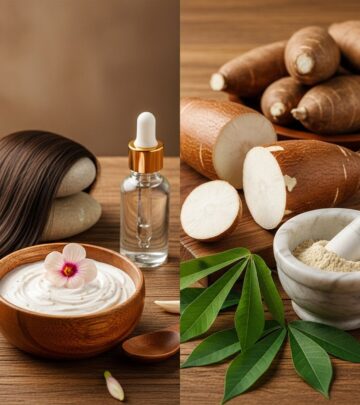Cantaloupe: The Nutritional Powerhouse for Radiant Skin, Strong Hair, and Vital Health
Discover why cantaloupe is a summer superfood for glowing skin, lustrous hair, and vibrant health, plus tips to harness its beauty and wellness benefits.

Cantaloupe: The Ultimate Guide to Skin, Hair, and Health Benefits
Cantaloupe, also known as muskmelon, is more than just a sweet, refreshing summer fruit. Packed with essential vitamins, minerals, and antioxidants, this melon offers a range of benefits for your skin, hair, and overall health. In this comprehensive guide, discover why cantaloupe deserves a spot in your diet and beauty routine, plus tips and answers to all your cantaloupe-related questions.
What Is Cantaloupe?
Cantaloupe is part of the Cucurbitaceae family. Recognizable by its netted rind and orange, juicy flesh, it is commonly enjoyed fresh, in fruit salads, smoothies, and even as a part of savory dishes. Cantaloupe is not only delicious and hydrating but also loaded with nutrients that promote beauty and wellness.
Nutrition Profile of Cantaloupe
- Water Content: Over 90%, making it exceptionally hydrating.
- Vitamins: High in vitamin A (as beta-carotene), vitamin C, B vitamins (notably B6, B3/niacin, and folic acid), and moderate vitamin K.
- Minerals: Contains potassium, magnesium, zinc, and silica.
- Antioxidants: Beta-carotene, vitamin C, polyphenols.
- Phytonutrients and Enzymes: Cucurbita enzymes for gentle exfoliation.
Table: Nutritional Content in 1 Cup of Cantaloupe (Approx. 177g)
| Nutrient | Amount |
|---|---|
| Calories | ~60 |
| Vitamin A | ~120% DV |
| Vitamin C | ~108% DV |
| Potassium | ~14% DV |
| Vitamin K | ~6% DV |
| Folate (B9) | ~8% DV |
| Fiber | ~2g |
Top Benefits of Cantaloupe for Skin
- Ultimate Hydration: With its high water content, cantaloupe deeply hydrates your skin, keeping it plump and soft. Proper hydration supports elasticity, reduces dryness, and gives a dewy, youthful look.
- Collagen Support: The vitamin C in cantaloupe stimulates collagen production, crucial for firm, elastic skin and the prevention of fine lines and wrinkles.
- Brightens and Evens Skin Tone: Rich in beta-carotene, which converts to vitamin A, cantaloupe helps brighten dull skin, evens out skin tone, and reduces pigmentation and redness.
- Antioxidant Defense: Beta-carotene, vitamin C, and additional antioxidants shield the skin from oxidative stress, protecting against premature aging and environmental aggressors like pollution and UV rays.
- Gently Exfoliates: Natural enzymes in cantaloupe facilitate mild exfoliation, removing dead skin and promoting a smooth, radiant complexion.
- Calms Inflammation: Cantaloupe contains soothing anti-inflammatory compounds ideal for sensitive or irritated skin, helping to calm redness and flare-ups.
- UV Protection: While not a substitute for sunscreen, cantaloupe’s antioxidants help reduce the skin-damaging effects of UV exposure, such as brown spots and premature wrinkles.
- Promotes Healing: Its nutrient and water content support wound healing and healthier skin regeneration.
- Nourishes for a Natural Glow: Improved circulation and hydration from cantaloupe consumption result in a natural, healthy radiance.
How to Use Cantaloupe for Skin Care
- Eat fresh cantaloupe as a snack, salad ingredient, or juice to hydrate and nourish skin from within.
- DIY face masks: Mash fresh cantaloupe and apply for 10–15 minutes as a refreshing, moisturizing mask. Combine with yogurt for exfoliation or with honey for extra hydration (always patch test first).
Top Benefits of Cantaloupe for Hair
- Hydration for Hair Strands: Its high moisture content prevents hair dryness and brittleness, especially in summer.
- Strengthens Follicles: Vitamin A (as beta-carotene) and C contribute to robust follicle health and hair strength.
- Promotes Hair Growth: Collagen boost from vitamin C and support from B vitamins enhance the rate and quality of hair growth.
- Reduces Hair Fall: Folate and vitamin B6 improve scalp circulation, giving follicles the nutrients needed and reducing seasonal shedding.
- Thicker, Shinier Hair: Zinc, magnesium, and natural silica help you achieve glossy, strong hair without the need for synthetic serums.
- Combats Dandruff and Irritation: Antioxidants and soothing minerals address mild dandruff and calm itchy, irritated scalps.
- Enhances Scalp Health: Niacin (B3) supports healthy scalp blood flow, delivering more nutrition to roots for stronger, fuller strands.
- Balances Sebum Production: Whether dry or oily, cantaloupe can help regulate scalp oil output, leading to healthy roots and shiny hair.
- Vitamin K for Resilience: This helps strengthen the delicate capillaries that nourish your follicles, supporting resilient hair growth.
How to Use Cantaloupe for Healthy Hair
- Eat cantaloupe regularly to provide your body with hair-healthy nutrients.
- Cantaloupe hair mask: Mash cantaloupe and apply to scalp and hair for 15–30 minutes. For extra benefits, combine with ingredients tailored to your needs:
- Dry hair: Mix with a spoon of coconut oil.
- Oily scalp: Add a scoop of aloe vera gel.
- Sensitive scalp: Blend with plain yogurt.
- Rinse off and shampoo as usual. Use weekly for noticeable results. Avoid leaving fruit-based masks on for longer than 30 minutes.
Top Health Benefits of Cantaloupe
- Boosts Immunity: High vitamin C levels support the immune system for better defense against infection and disease.
- Promotes Eye Health: Beta-carotene and vitamin A lower the risk of cataracts and age-related macular degeneration.
- Supports Heart Health: Potassium helps balance fluids and may reduce blood pressure, supporting cardiovascular wellness.
- Aids Digestion and Hydration: Cantaloupe’s fiber and water content aid digestion, regularity, and prevent dehydration.
- May Help with Weight Management: Low in calories, filling, and hydrating—ideal for healthy snacking.
- Kidney Friendly: Its hydrating powers and mineral content may benefit healthy kidneys.
- Reduced Inflammation and Cancer Risk: Antioxidants may help fight cellular stresses linked to chronic inflammation and certain cancers.
Cantaloupe in Your Diet: Tips & Serving Ideas
- Enjoy fresh cantaloupe cubes as a cooling snack.
- Add to fruit salads for color and extra nutrition.
- Blend into smoothies with other vitamin-rich fruits for a post-workout refresher.
- Serve with cottage cheese or yogurt for a balanced breakfast.
- Use as a sweet touch in green salads or summer salsas.
Using Cantaloupe for Beauty: Precautions and Allergies
- Always do a patch test before applying cantaloupe masks to skin or scalp to rule out sensitivity.
- Use fresh, ripe cantaloupe and avoid leaving masks on for more than 15–30 minutes to prevent irritation.
- Consult a dermatologist if you have extremely sensitive skin or allergies.
- Children over 3 can use cantaloupe-based masks (with supervision and testing for reactions first).
Frequently Asked Questions (FAQs)
Q: What are the main nutrients in cantaloupe?
A: Cantaloupe is rich in vitamin A (beta-carotene), vitamin C, B-complex vitamins, potassium, magnesium, fiber, and powerful antioxidants.
Q: How can I use cantaloupe for glowing skin?
A: Eat fresh cantaloupe for hydration and antioxidants, or apply mashed cantaloupe directly as a face mask for 10–15 minutes to refresh, hydrate, and gently exfoliate the skin.
Q: Can cantaloupe help with hair growth?
A: Yes. Cantaloupe’s vitamin A, C, B vitamins, and minerals like silica support healthy follicles, promote growth, reduce breakage, and add shine when consumed or used in hair masks.
Q: What are some safe ways to apply cantaloupe topically?
A: For skin, use mashed cantaloupe alone or with honey/yogurt as a 10–15-minute mask. For hair, blend with coconut oil, aloe vera, or yogurt and apply for up to 30 minutes before washing off. Avoid strong additives and always patch test.
Q: Who should avoid using cantaloupe topically?
A: Individuals with melon allergies, highly sensitive skin, or children under 3 (without supervision/patch testing) should avoid or use with caution. Discontinue if any irritation occurs.
Q: What is the difference between cantaloupe and other melons?
A: Cantaloupe (muskmelon) is orange-fleshed and netted, while honeydew is light green. Both have hydration and nutrient benefits but cantaloupe is richer in beta-carotene and vitamin C.
Summary Table: Benefits of Cantaloupe for Beauty and Health
| Benefit | Key Components | Result |
|---|---|---|
| Glowing, hydrated skin | Water, Vitamin C, Beta-carotene | Dewy, plump, even-toned skin |
| Stronger hair | Vitamin A, C, Silica, B vitamins | Less breakage, added shine, improved growth |
| Boosted immunity | Vitamin C | Better defense from illness |
| Healthy digestion | Water, fiber | Regular, comfortable gut function |
| Eye health | Vitamin A, Beta-carotene | Reduced risk of eye disorders |
Conclusion
Cantaloupe is a nutritional treasure with wide-ranging benefits for skin, hair, and health. By incorporating this flavorful fruit into both your diet and beauty routine, you can unlock renewed vitality, natural beauty, and a sense of well-being throughout the year.
Read full bio of Sneha Tete











